Smart motorway crash survivor criticises new roadside safety areas
- Published
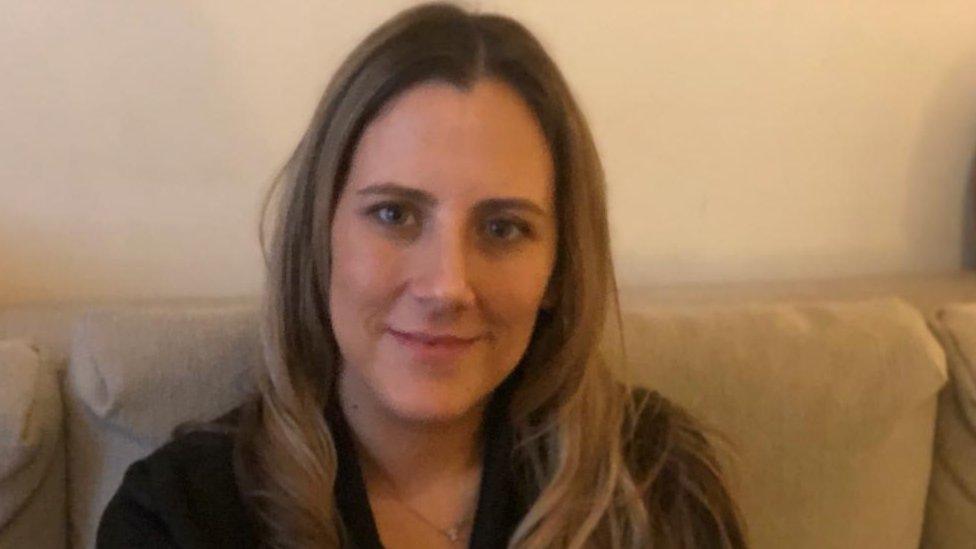
Ana Borges suffered life-changing injuries in a crash on a stretch of smart motorway
A woman who was severely injured in a crash on a stretch of a smart motorway has criticised plans for new roadside emergency stopping areas.
Ana Borges's car was hit by a lorry when it broke down on a hard shoulder, which was opened to traffic on the M1.
National Highways said it was creating 150 roadside refuges in response to concerns about smart motorway safety.
However, Mrs Borges said she believed the areas would not be enough to protect motorists.
The 43-year-old suffered spinal injuries, five broken ribs and a broken chest bone, in a crash near junction 24A in Nottinghamshire as she was driving to work on 25 April 2023.
She said the hard shoulder she stopped on, after her car got a flat tyre, was being used as an extra lane as part of the smart motorway to reduce congestion.
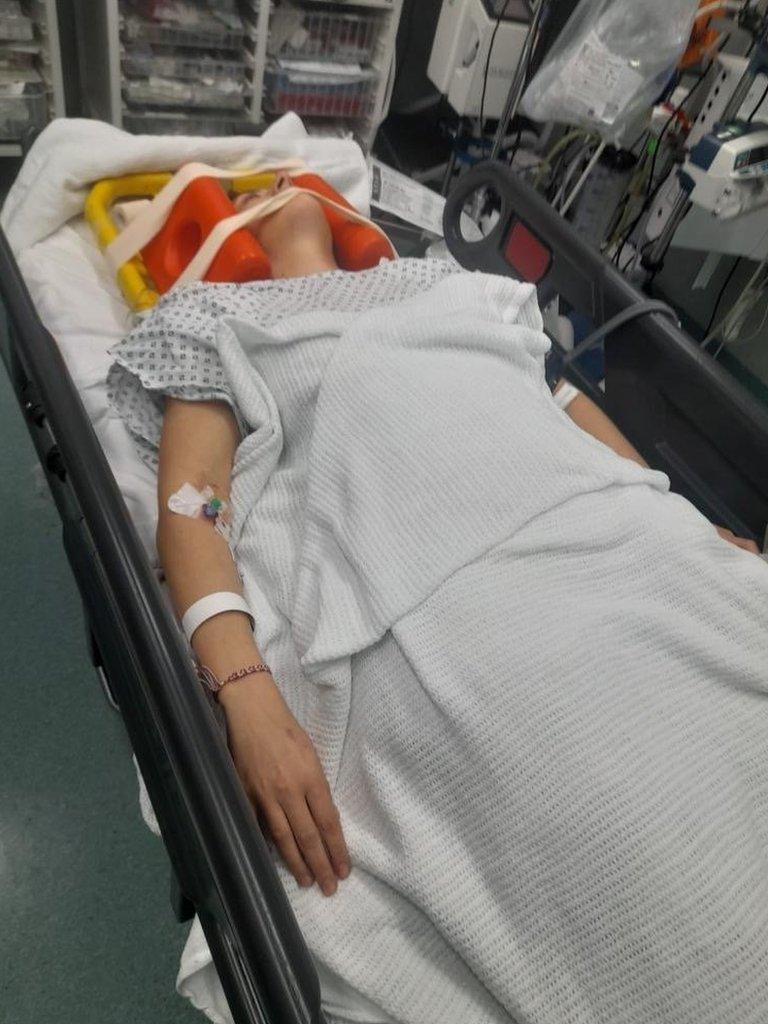
Mrs Borges said doctors had told her she was lucky to have survived
Mrs Borges, from Kegworth, Leicestershire, said she had been unable to reach the nearest section of the unopened hard shoulder, which was less than half a mile (0.8km) up the road when the crash happened.
"That's the problem," she told the BBC.
"They don't help anyone who gets stuck between them. The signs told me I was not far from the next bit of hard shoulder but I couldn't reach it.
"The hard shoulders should be that place of safety.
"Smart motorways were a terrible idea. There's a big lack of safety.
"If you have a breakdown you just panic. It can be a death sentence. You just have to pray not to be hit."

What is a smart motorway?
There are three main types:
Controlled, which have a permanent hard shoulder, but use technology such as variable speed limits to adjust traffic flows
Dynamic, where the hard shoulder can be opened up at peak times and used as an extra lane; when this happens, the speed limit is reduced to 60mph
All-lane running, where the hard shoulder has been permanently removed to provide an extra lane; emergency refuge areas are provided at regular intervals for cars that get into trouble
All three models use overhead gantries to direct drivers. Variable speed limits are introduced to control traffic flow when there is congestion, or if there is a hazard ahead. These limits are controlled by speed cameras.

Mrs Borges said the injuries she suffered meant she could no longer bend or twist her back.
"That was the day I was supposed to die," she said.
"I think someone was looking after me. It was the kind of accident you don't survive."
A Nottinghamshire Police spokesperson said a 59-year-old man had been voluntarily interviewed about the crash and a file had been sent to the Crown Prosecution Service to consider criminal charges.
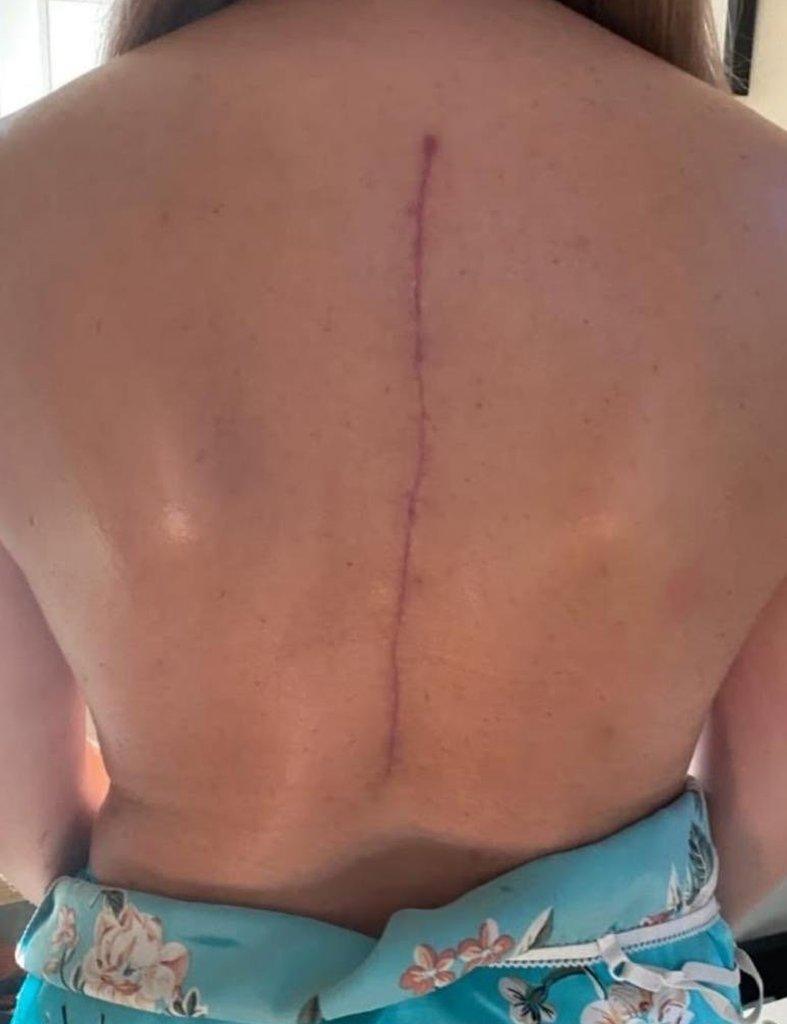
Metal rods and screws were needed to repair Mrs Borges's spine
Days before Mrs Borges was injured, the building of new smart motorways was cancelled by the government over cost and safety concerns.
Claire Mercer has spearheaded a campaign to scrap existing smart motorway stretches since her husband Jason was killed in 2019.
He had stopped on a section of the M1, in South Yorkshire, with no hard shoulder to exchange details with another driver when both were hit and killed by a lorry.
She said: "These areas are better than nothing but they will be few and far between and no protection to anyone who cannot reach them.
"The only way to make smart motorways safe is to get rid if them."
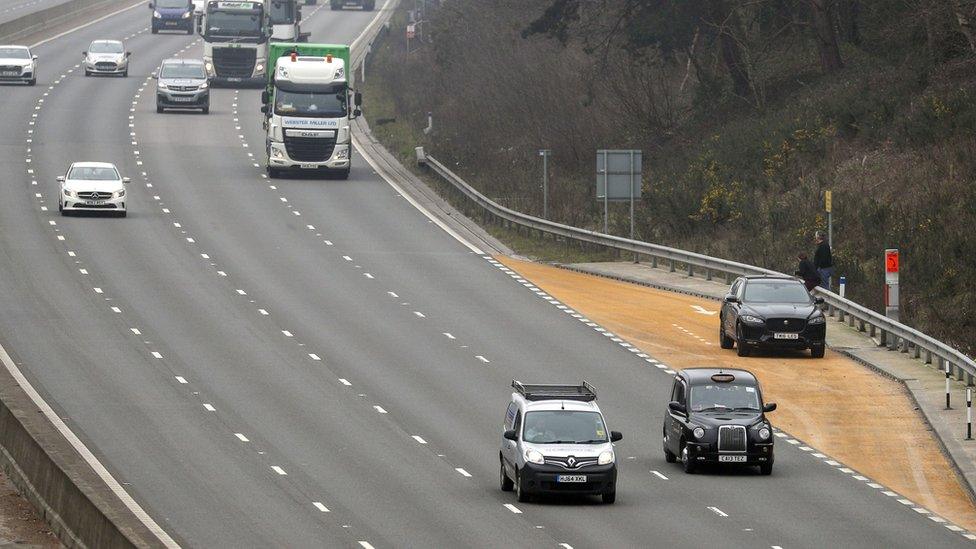
The orange-coloured refuges provide extra places to stop in an emergency on a smart motorway
National Highways project sponsor Felicity Clayton said: "Safety is our highest priority and we are committed to further improving all-lane running motorways.
"We have listened to drivers' concerns about being able to find a safe place to stop in an emergency and have committed to delivering over 150 additional emergency areas.
"This investment is part of a series of upgrades we are making to help road users feel safe and be safer on our roads.
"We have also put stopped vehicle detection technology in place, added more signs showing drivers the distance to the next place to stop in an emergency, and included advice about smart motorways online and in an updated Highway Code."

Follow BBC East Midlands on Facebook, external, on X, external, or on Instagram, external. Send your story ideas to eastmidsnews@bbc.co.uk, external.
Related topics
- Published18 December 2023
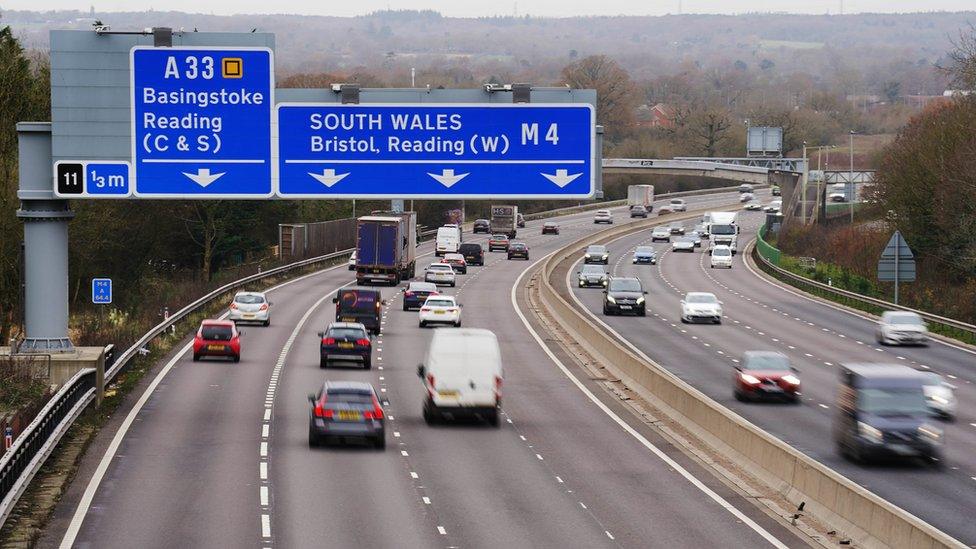
- Published22 April 2024
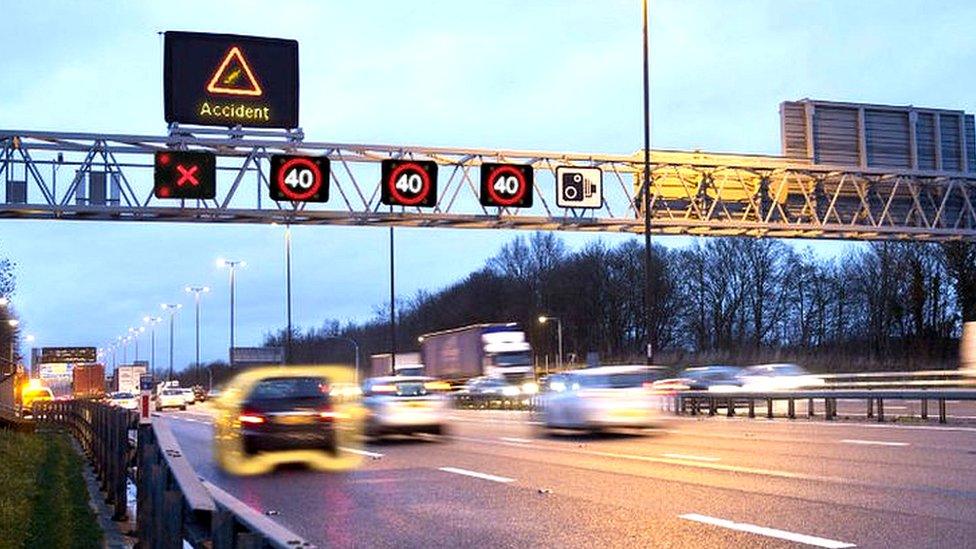
- Published26 January 2022
